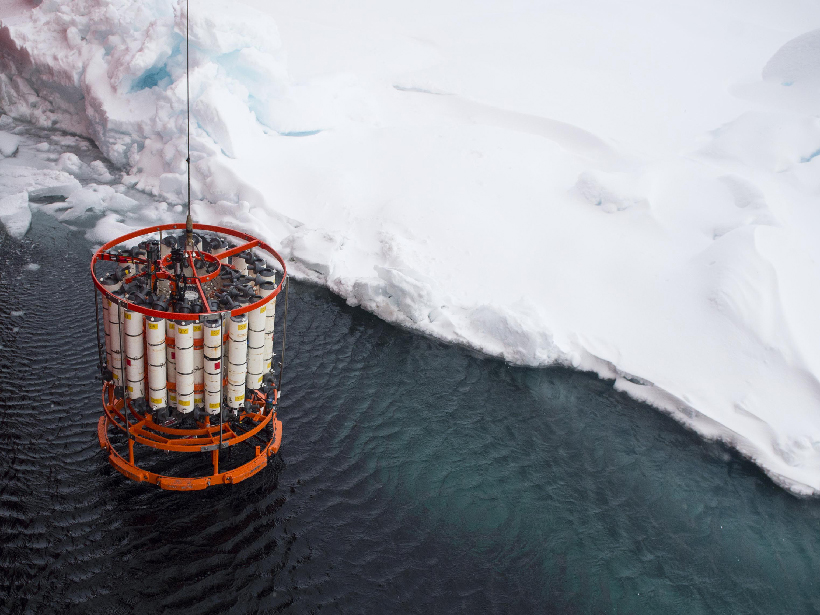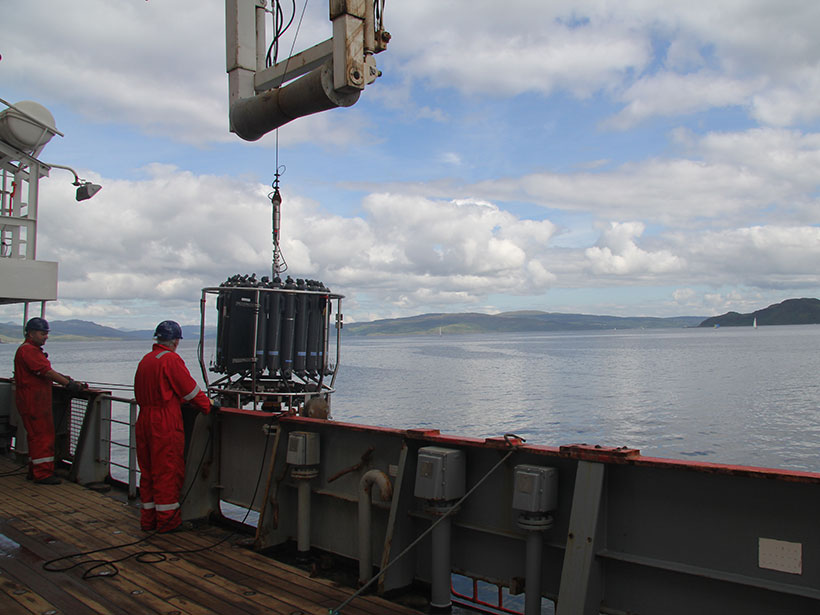Un nuevo modelo permitirá a los modelos climáticos interpretar mejor las reconstrucciones paleoclimáticas derivadas de sedimentos de lagos y podrá mejorar las predicciones de las condiciones climáticas futuras.
Research Spotlights
Research spotlights are plain-language summaries of recent articles published in AGU’s suite of 24 journals.
Land Motion Offers Insights into Cascadia Earthquake Cycle
Comparing recent GPS data with a longer record of sea level along the western coast of North America allows researchers to home in on interseismic deformation above the Cascadia megathrust.
Lending a Hand to Sustainability
Handprint thinking, a concept developed about a decade ago, is meant to complement ecological footprints and frame human actions in terms of how much good they can do to promote sustainability.
Rastreando Elementos Traza a Través del Océano Ártico
Durante la expedición Pan-ártica, los investigadores obtuvieron y utilizaron datos de carbono y elementos traza para comprender mejor cómo el cambio climático afectará la producción primaria en una de las regiones de calentamiento más rápido del mundo.
Social Media Helps Reveal Cause of 2018 Indonesian Tsunami
Videos from Twitter and YouTube helped scientists tease out the physical mechanisms that generated the large tsunami in Palu Bay after a magnitude 7.5 earthquake.
Electron Density near Enceladus Shows Orbital Variation
The electron density peaks well after the activity of the moon’s distinctive south polar ice plume reaches its maximum, but the cause of the lag remains puzzling.
Why Did Great Apes Disappear from Southwestern China?
Periodic pulses of cooler temperatures may have disrupted the warm, humid, late Miocene climate that sustained the region’s great apes long after most species disappeared elsewhere.
How to Improve Space Weather Forecasting
The field of space weather forecasting could take cues from its Earthly counterpart to increase the reliability of models as well as warning times ahead of inbound solar storms.
Marine Nitrous Oxide Emissions off Northwest Europe
Continental shelves and estuaries are natural sources of nitrous oxide, but current global estimates of these emissions carry a lot of uncertainty, a problem that calls for regional studies.
El Ciclo del Carbono en el Agujero Azul Más Profundo de la Tierra
Científicos encuentran nuevos extremos mientras investigan el ciclo del carbono en el agujero azul de Yongle.










